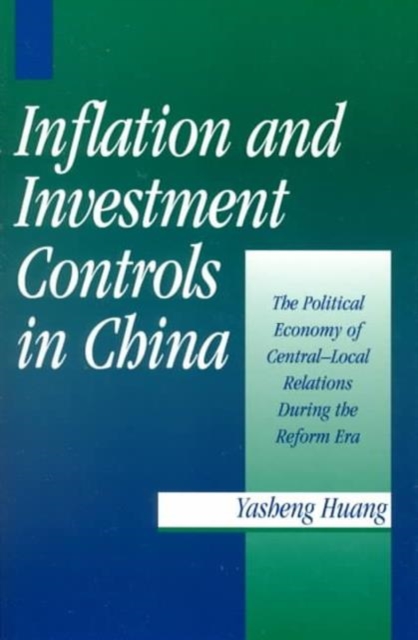
Inflation and Investment Controls in China : The Political Economy of Central-Local Relations during the Reform Era Paperback / softback
by Yasheng (University of Michigan, Ann Arbor) Huang
Paperback / softback
Description
How has the Chinese central government been able to avoid the crippling hyperinflation that has bedeviled so many developing and centrally planned economies?
China's unique, de facto federalism, Huang argues - a combination of economic and fiscal decentralization and strong political centralization - has spurred economic growth and allowed political institutions to impose restraints on inflation from the top down.
Focusing on central-local relations and the controlling role of political institutions, Yasheng Huang explains why local Chinese officials comply, even against their own economic interests, with the investment-reduction and inflation-control policies of the central government.
Drawing upon institutional economics, he hypothesizes that the central government's powerful role in appointing and firing bureaucrats at the local level helps to reconcile some of the central-local economic policy differences.
Huang uses systematic data analysis to test this proposition.
This book also offers detailed descriptions of the roles of local governments in economic and investment management.
Information
-
Only a few left - usually despatched within 24 hours
- Format:Paperback / softback
- Pages:396 pages, 41 Tables, unspecified; 12 Line drawings, unspecified
- Publisher:Cambridge University Press
- Publication Date:13/11/1999
- Category:
- ISBN:9780521665735
Information
-
Only a few left - usually despatched within 24 hours
- Format:Paperback / softback
- Pages:396 pages, 41 Tables, unspecified; 12 Line drawings, unspecified
- Publisher:Cambridge University Press
- Publication Date:13/11/1999
- Category:
- ISBN:9780521665735






